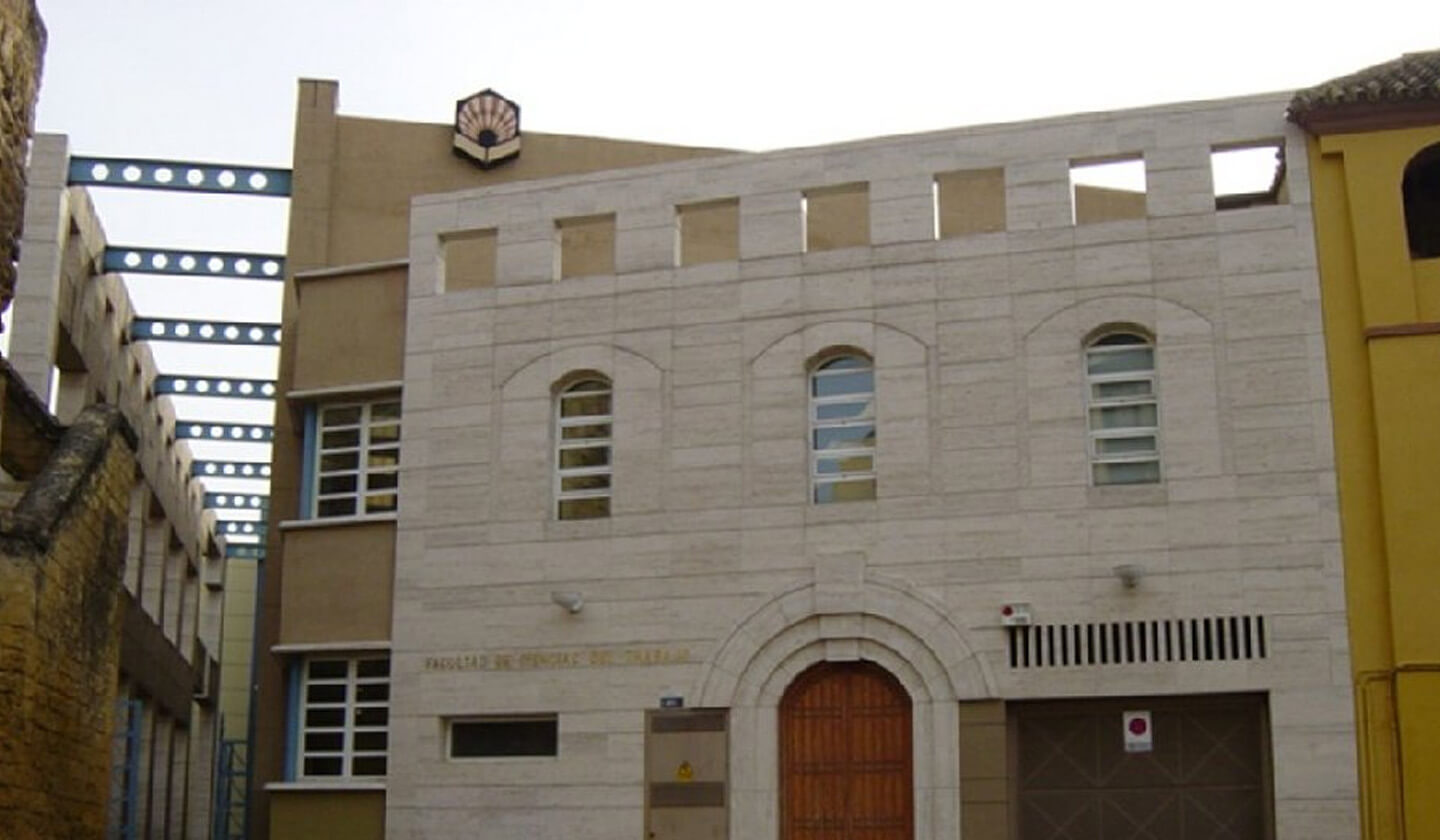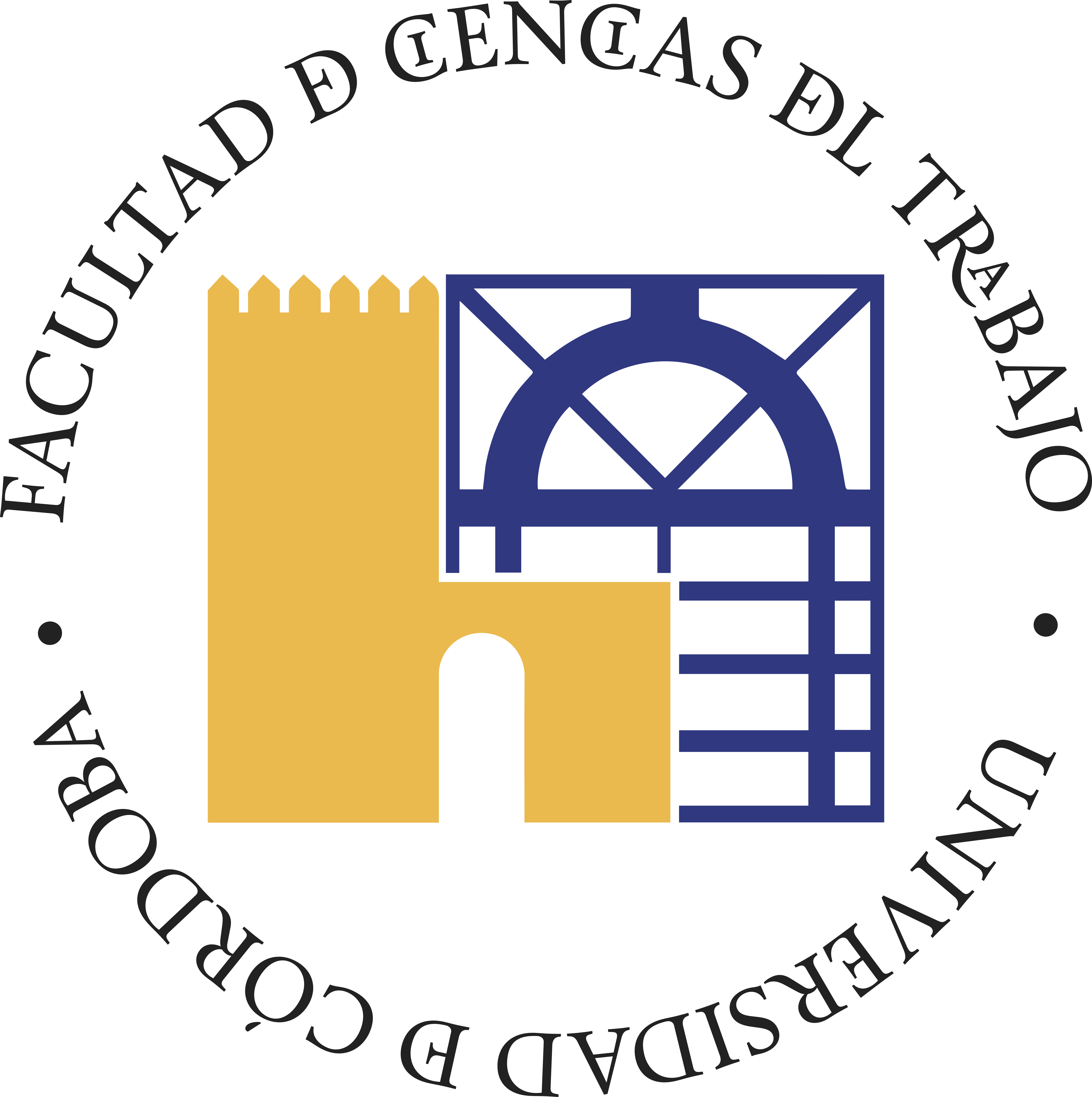Information
- PERSON IN CHARGE: Ms. CONCHA LÓPEZ POZUELO
- HOURS: Tuesday and Thursday from 9:00 AM to 2:00 PM
- PHONE: 957 212522 / 626916364
- E-MAIL: Esta dirección de correo electrónico está siendo protegida contra los robots de spam. Necesita tener JavaScript habilitado para poder verlo.
- LOCATION: PLANTA BAJA.
External Mobility Office
- Information Location: Secretariat
- Contact Person: Inmaculada Lara Merino
- Email: Esta dirección de correo electrónico está siendo protegida contra los robots de spam. Necesita tener JavaScript habilitado para poder verlo.
- Phone: +34 957 212 526
- Fax: +34 957 218 908
- Skype: Secretaria RRLL
- Mobility Coordinator: Virginia Navajas Romero
- Email: Esta dirección de correo electrónico está siendo protegida contra los robots de spam. Necesita tener JavaScript habilitado para poder verlo.
- Phone: 957 21 25 09
Main Functions of the External Relations Office
- Provide advice on the center’s mobility programs for UCO faculty and students, both in person and via email.
- Offer guidance on international mobility programs to foreign faculty and students, primarily via email.
- Manage the necessary documentation for national and international mobility of faculty and students, both "incoming" and "outgoing."
- Support in coordinating this center's exchange and mobility programs with foreign and national universities.
- Process requests for recognition of courses from partner universities in the center’s exchange programs.
- Coordinate Erasmus tutors.
- Coordinate students participating in Erasmus internships.
DESCRIPTION OF THE STUDIES
The joint itinerary of the Degree in Tourism and the Degree in Translation and Interpreting is framed within the branches of Arts and Humanities, and Social and Legal Sciences. Its curriculum offers training that covers, on the one hand, territorial planning to economic analysis, including business management, service marketing, cultural and psychosocial components of the phenomenon, and the legal regulations governing the activity; and, on the other hand, the use of tools for translation, IT, audiovisual media, or interpreting, along with proficiency in a third language (Language C) at a B1 level. The program emphasizes foreign language teaching and prepares students for professional work in areas such as translation, education, the publishing sector, and the management of tourism resources and tourism businesses.
PPROFESSIONAL PROFILE AND JOB OPPORTUNITIES
From a professional standpoint, this Double Degree allows graduates to enter various sectors related to language use and any area within the tourism industry (accommodation, restaurants, intermediary services, transport, destination and tourism product planning). Notable opportunities include:
- Translation and interpreting in institutions, companies, and international organizations (European Union, European Commission)
- Teaching (Secondary and High School education)
- Text editing (literary editor or advisor for publishing houses)
- Teaching Spanish as a foreign language or teaching foreign languages
- Linguistic advisory roles in state administration, commercial, healthcare, administrative, and legal sectors
- Conference interpreting, press conferences, book or movie presentations
- Documentation work (documentalist)
- Diplomacy
- Translation in the audiovisual sector (films, video games)
- Linguistic and intercultural mediation, including for communication disabilities
- Research (universities and public administration institutions)
- Multilingual secretarial work
- Writing and collaborating with newspapers
- Literary production
- Managing tourism businesses
- Working in public institutions as a management or planning technician, responsible for tourism development programs, tourism development agents, directors or technicians in institutions promoting tourism products, or tourism consultants.
SKILLS ACQUIRED BY THE STUDENT
This joint itinerary aims for students to acquire skills in communication and translation in foreign languages (English and other modern languages), the use of necessary resources for language study and documentary sources in multiple foreign languages, as well as the use of ICT and the ability to work in interdisciplinary and international teams. It also aims to develop the skills necessary for the scientific study and management of destinations, tourism resources, political-administrative tourism structures, and business sectors on a global level. Simultaneously, it seeks to introduce new professional profiles and develop existing ones, primarily practical ones, with a view toward their professional careers. This is achieved through the acquisition of basic competencies and knowledge that enable professional practice and continuous learning.

General Information
| Degree Name | Bachelor´s Degree in Tourism |
| Number of new student places offered | 90 |
| Minimum number of enrolment credits | 24 credits |
| Faculty and location | Faculty of Labour Sciences |
| Publication in BOE | anuary 29, 2015 / BOE No. 25 / Download |
| Year of title implementation | 2010-2011 |
| Number of courses in the implementation phase | 1st, 2nd, 3rd, and 4th (2013-2014) |
| Field of knowledge | Social and Legal Sciences |
| Program Duration | 240 credits / 4 years |
| Type of teaching | On-site |
| Languages used | Spanish, modern language (English, German/French) |
Degree Justification
The Bachelor's Degree in Tourism has a distinctive and specific professional, academic, and educational profile. Due to its multidimensional nature, the study of tourism has been approached from various scientific perspectives, ranging from spatial planning and economic analysis to business management, service marketing, cultural and psychosocial components, and the legal regulations governing the activity.
The globalization of tourism has led to the emergence of new markets and, consequently, increased competitiveness among destinations. Success in this environment requires offering innovative and high-quality products and services, which demands highly qualified professionals for both public and private management. Therefore, the existence of a Bachelor´s Degree in Tourism is essential for training professionals to work in the following areas:
- Accommodation
- Food and Beverage Services
- Intermediation
- Transport and Logistics
- Public Planning and Destination Management
- Tourism Products and Activities
- Education, Research, and Consulting
Career Opportunities
Academic Opportunities - Links to Other Studies
Graduates in Tourism may access other related studies, including postgraduate and continuing education courses offered by the Faculty of Labour Sciences, as well as other master´s degrees and doctoral programmes at the University of Córdoba.
Professional Opportunities
The degree offers a broad range of professional opportunities:
- Work in the private sector in any of the areas of tourism businesses (accommodation, food services, intermediation, and transport).
- Work in public institutions as a planning or management technician, programme manager for tourism development, tourism development agents, or directors/technicians of institutions promoting tourism products.
- Work in tourism consultancy.
- Work in teaching (secondary or university education).
- Work in research.
Competencies
Basic Competencies
- Analytical and synthesis skills
- Organizational and planning skills
- Oral and written communication in Spanish
- Teamwork
- Interpersonal relationship skills
- Critical thinking
- Autonomous learning
- Ethical commitment to a more just society respectful of fundamental rights
- Acquisition of knowledge and competencies to pursue postgraduate studies
University Competencies
- Proficiency in a foreign language
- Proficiency in ICT tools and skills
- Promotion of active job-seeking habits and entrepreneurial skills
Specific Competencies
- Understand the principles and impacts of tourism: spatial, social, cultural, political, labour, and economic dimensions.
- Understand the dynamic and evolving nature of tourism and leisure society.
- Analyse and understand tourism-generated impacts (social, economic, environmental).
- Know the main political-administrative tourism structures and actors in the sector.
- Understand the legal framework regulating tourism activities.
- Ability to undertake and follow procedures before institutions.
- Select, analyse, manage, interpret, and synthesise information in the tourism sector.
- Know and apply basic concepts of Law, Business Management, Statistics, Economics, and Geography.
- Identify and manage tourist destination spaces.
- Understand objectives, strategies, and tools for tourism planning.
- Understand the functioning of destinations, tourism structures, and business sectors globally.
- Manage various types of tourism entities.
- Plan and manage resources in tourism organisations.
- Define commercial objectives, strategies, and policies in tourism.
- Understand operational procedures in tourism businesses (accommodation, food services, intermediation).
- Evaluate tourism potential and prospective analysis for technical infrastructure and facility planning.
- Manage territories and tourism resources following sustainability principles.
- Understand major initiatives for enhancing cultural heritage.
- Understand characteristics of cultural heritage management.
- Transform an empirical problem into a research object and draw conclusions.
- Work in English as a foreign language.
- Communicate orally and in writing in a second foreign language.
- Work in different cultural environments from a linguistic perspective.
Regulations on Academic Progress (FAQs)
According to the Academic Regulations for Official Undergraduate Studies at the University of Córdoba (approved by the Governing Council on 19/07/2019, modified on 02/07/2020):
Types of enrolment:
- Full-time: New students must enrol in a minimum of 60 and a maximum of 78 ECTS. Continuing students are considered full-time with 37?78 ECTS (more than 78 allowed in exceptional academic cases).
- Part-time: For justified reasons (work, family responsibilities, special needs, residence), students may enrol in 24-36 ECTS for undergraduate and 30?36 for Master?s degrees. Must be requested when registering.
Changing enrolment mode:
- Only allowed at the time of new registration.
- For a change from full- to part-time, students must initially register for at least 37 ECTS and adjust later if approved. Failure to adjust implies withdrawal from the request.
- Changing from part- to full-time only requires notification and takes immediate effect.
Number of attempts per subject:
- Six.
When is an attempt considered used?
- When the student participates in the evaluation process.
What if all 6 attempts are used and the subject is not passed?
- Students may request an extraordinary attempt. The request is resolved by the Dean and reviewed by a Commission composed of university representatives.
Credits required to continue:
- First-year students must pass at least six credits to retain the right to continue. If not, one new enrolment may be granted exceptionally with justification.
Maximum number of years in the degree:
- Degree Programme
- Full-time
- Part-time
- Tourism / Labour Relations & HR
- 7 years
- 10 years
Exceptions apply to students with duly accredited exceptional circumstances.
Advancing an exam call: Students with 15% or fewer credits left to complete the degree may request early exam calls under UCO regulations.





